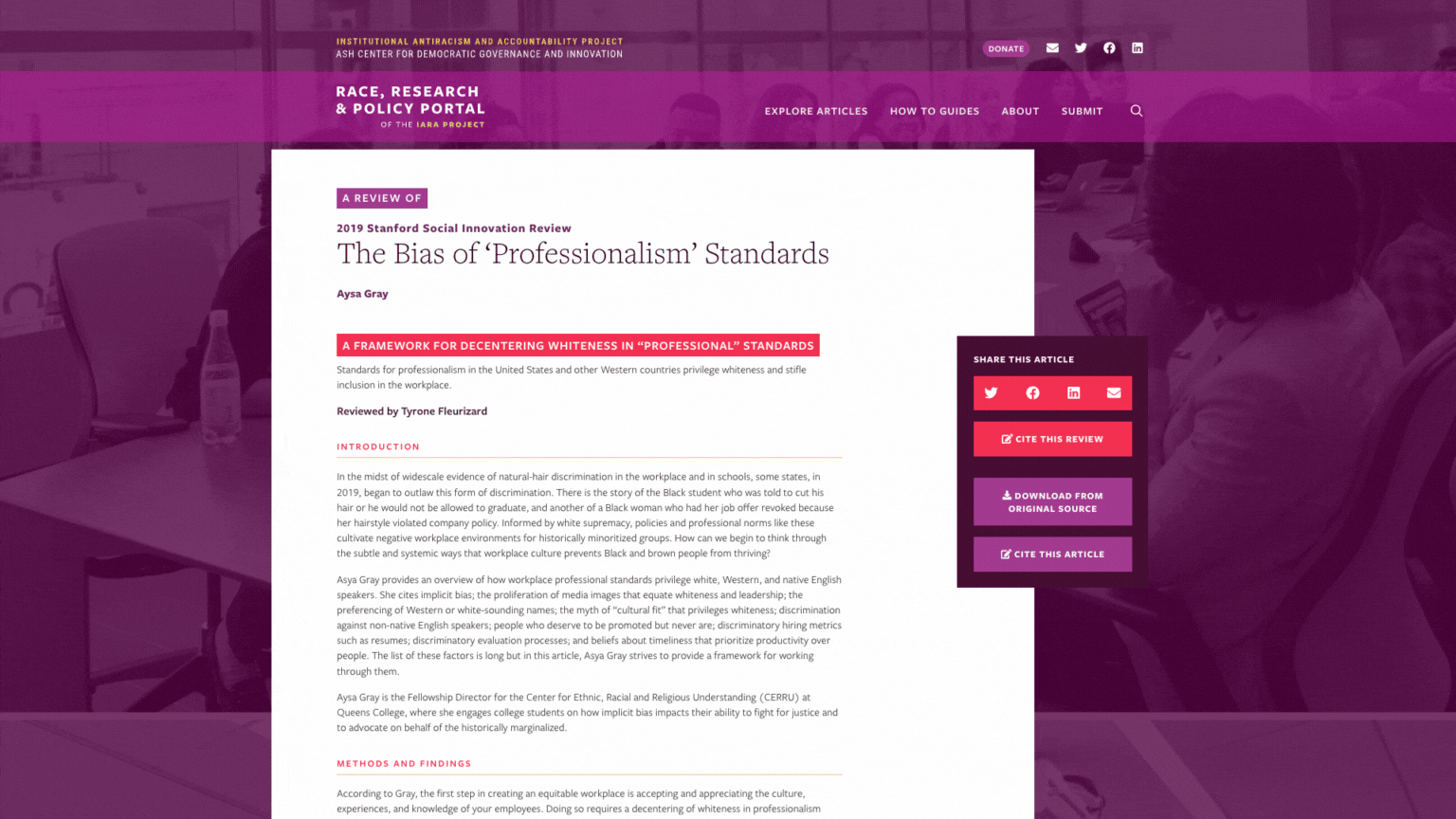Antiracism is not about intentions — it’s about actions and outcomes. As many institutions develop their antiracist commitments each year, there’s a growing need for effective, practical, and implementable practices at the institutional level.
Research plays a crucial role in identifying field-tested solutions within and across sectors. In order to develop effective strategies for racial equity, practitioners in the field want to know: Which practices are proven to achieve more equitable outcomes for Black, Indigenous, and communities of color? And which practices are ineffective, or even counterproductive?
Enter the Race, Research, and Policy Portal (RRAPP), created by the Institutional Antiracism and Accountability Project (IARA): a free resource featuring easy-to-read summaries of peer-reviewed research. Each summary identifies what works — and what doesn’t work — within institutions, listing clear takeaways in a short format. They are grounded in rigorous social science research, and there’s no paywall.

Here are five ways to use RRAPP as a tool for antiracist change:
1. Bring a specific question
If your organization or field research has been working through a particular issue, chances are, you’re not alone. With over 100 research summaries, RRAPP is likely to have proven solutions to consider for your use. You can use the search bar at the top to browse by term or check out the how-to guides page to see if there’s a guide on the issue.
2. Explore your field of practice (or learn from another)
It’s important to understand issues affecting your area, but there are plenty of lessons to learn from other fields too. RRAPP features research from a variety of sectors, ranging from healthcare and education to the non-profit, private, government, and cultural sectors. You can sort by field using the dropdown menu in the summary database.

3. Survey effective methodologies
Each summary on RRAPP features a section outlining the methodologies used by the original study. This is a great way to understand how researchers are evaluating and measuring antiracist change — and how you can too. Head over to an article and scroll to the section titled ‘Methods and findings’.
4. Drive your organization’s policies with data
Data-based strategies are critical when drafting new policies. Not only do they demonstrate that the desired outcomes are supported by research, but they also offer a basis for scoring success. With RRAPP articles, it’s easy to cite the summaries and access the original materials. Each article has a “cite” button to easily click and copy the citation you need.
5. Stay up-to-date with the latest research
Institutional antiracism is an expanding field, and new findings are published often. RRAPP adds summaries regularly, providing an easy way to keep your finger on the pulse. Tip: bookmarking the page will make it even easier to check back.
Lastly, if there’s an article, topic, or how-to guide that you think is missing from RRAPP, don’t hesitate to reach out to the team at the IARA Project at iara@hks.harvard.edu. You can also write to submit an article for consideration using the submit link at the top right on the homepage.
Subscribe to IARA’s newsletter, or follow them on LinkedIn and Twitter to stay up-to-date with RRAPP.





